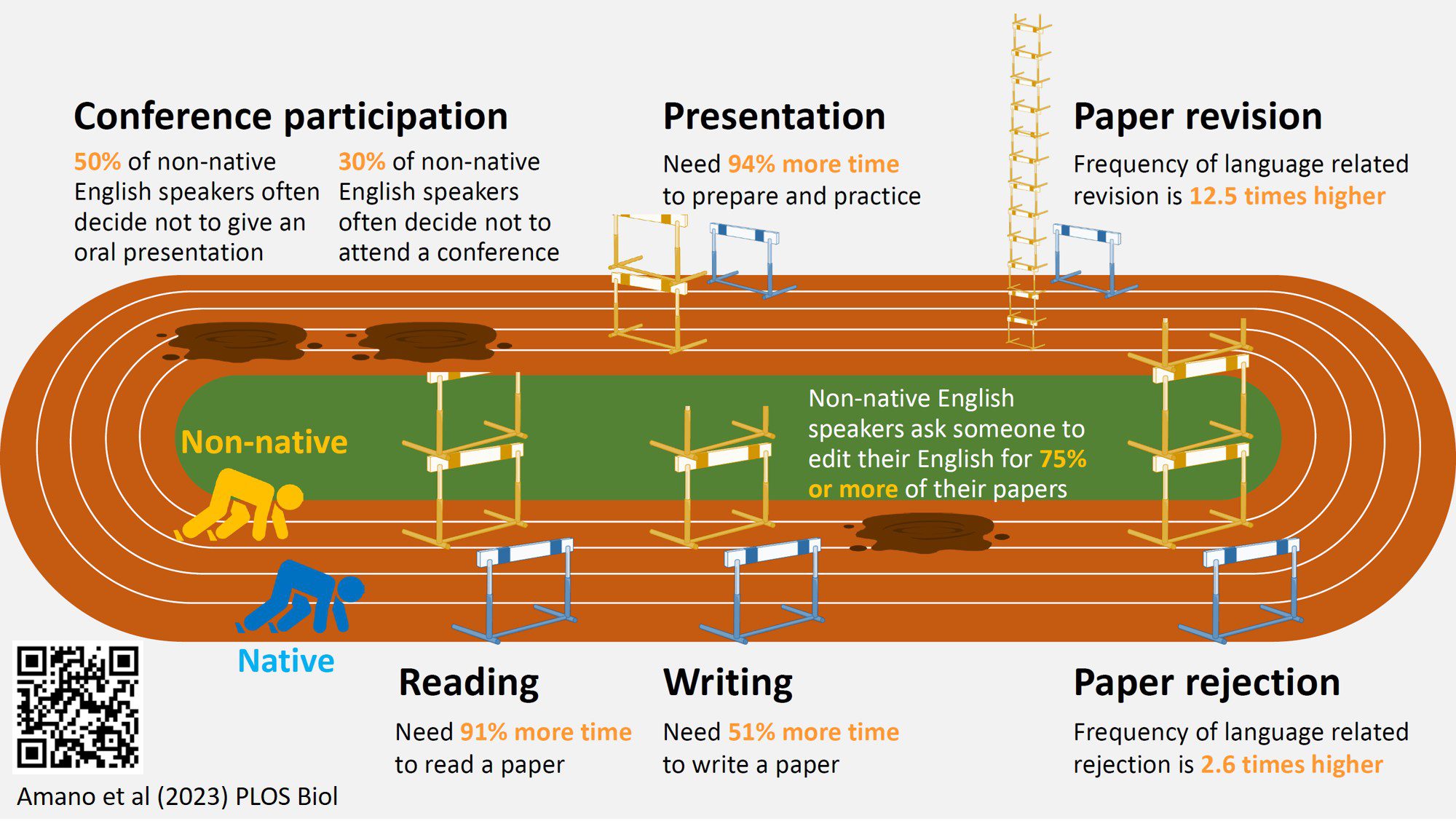The manifold costs of being a non-native English speaker in science
Amano, T., Ramírez-Castañeda, C., Berdejo-Espinola, V., Borokini, I., Chowdhury, S., Golivets, M., González-Trujillo, J.D., Montaño-Centellas, F., Paudel, K., White, R.L. & Veríssimo, D. (2023) PLOS Biology 21: e3002184.
English serves as a convenient, common language for science. However, this practice poses insurmountable barriers to those whose first language is not English—the majority of people around the world. In this paper, we quantified disadvantages of being a non-native English speaker in conducting a range of scientific activities, from reading and writing papers to participating in international conferences.
Few studies to date have quantified the manifold costs of being a non-native English speaker in science. We surveyed 908 environmental scientists from eight countries (Bangladesh, Bolivia, Japan, Nepal, Nigeria, Spain, Ukraine and the UK) with different linguistic and economic backgrounds, and compared the amount of effort required by individual researchers to conduct a variety of scientific activities in English.
The survey revealed clear and substantial disadvantages for non-native English speakers. Compared to native English speakers, non-native English speakers need up to twice as much time to read and write papers and prepare presentations in English. Papers written by non-native English speakers are 2.5 times more likely to be rejected and 12.5 times more likely to receive a request for revision, simply due to the written English. Many of them also give up attending and presenting at international conferences because they are not confident communicating in English (see the first infographic below).
These findings have important implications for global efforts to create a more inclusive academia where anyone can thrive and shine. We also found that these disadvantages disproportionately affect those at an early career stage and from lower-income countries. Unless we break down these barriers, we won’t be able to achieve fair participation for non-native English speakers in science, nor can we expect contributions to science from those whose first language happens to be a language other than English.
The paper also proposes potential solutions, which range from supervisors recognizing the difficulties faced by their students, to journals providing free English editing, and funders offering financial support to efforts working towards overcoming language barriers (see the second infographic below).
See S2-S6 Text in Supporting Information for Alternative Language Abstract and Infographic in Japanese, Nepali, Portuguese, Spanish (main text as well), and Ukrainian.
Our piece at The Conversation: Non-native English speaking scientists work much harder just to keep up, global research reveals.
Coverage in:
- Nature: The true cost of science’s language barrier for non-native English speakers.
- Science: For nonnative English speakers, scientific careers bring particular challenges.
- Le Monde (in French): Les chercheurs non anglophones fortement désavantagés dans les publications scientifiques.
- elDiario.es (in Spanish): Hacer ciencia en inglés tiene un alto coste para los hablantes no nativos: “Tienes 12 veces más barreras”.
- Kyodo News (in Japanese): 英語で科学研究、つらい 論文に時間、国際学会を敬遠
Press releases are issued from:
The University of Queensland: Science language barrier could cost countless careers.
Public Library of Science: The cost of being a non-native English speaker in science.


